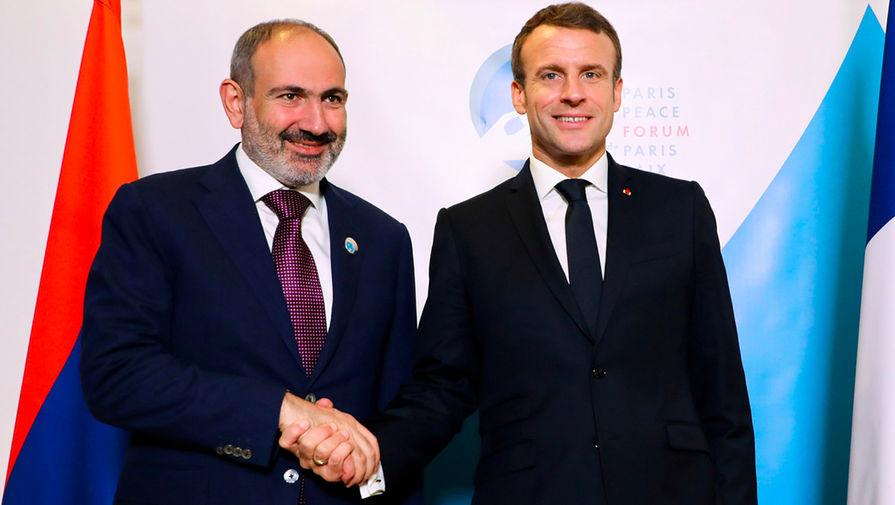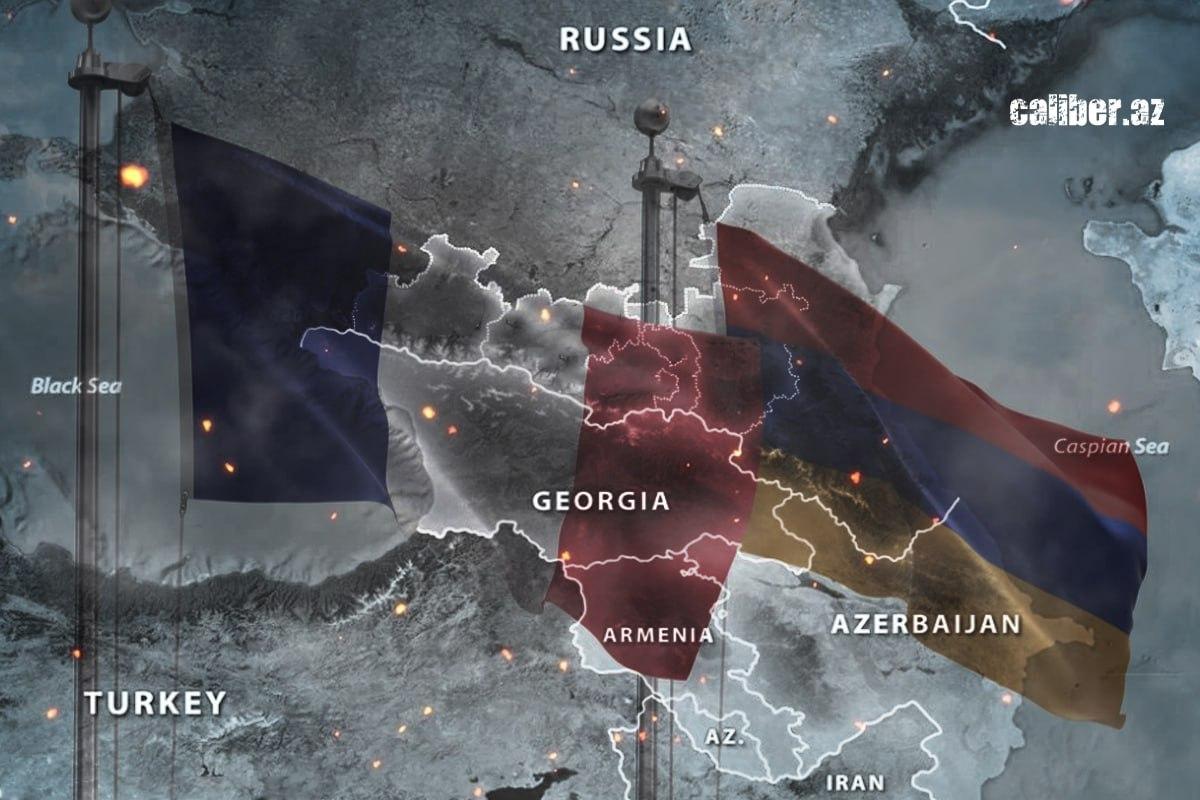Paris and the Armenian factor Another false start by French deputies
In recent days, it seems to have become a trend in the legislative bodies of some Western countries to adopt and propose various documents under the loud titles of “statements” and “resolutions” with an anti-Azerbaijani bias. After the Belgian parliament and 87 members of the U.S. House of Representatives from 24 states, this time it was France’s turn, where a proposal was submitted to the National Assembly to adopt a resolution calling on the French government and the EU to “increase pressure on Azerbaijan to expedite the signing of a peace agreement with Armenia and the release of Armenian prisoners illegally held in Baku.”
Although, to be frank, it is not surprising that the Fifth Republic leads this campaign, inspired by the Armenian lobby, directed against Azerbaijan. For many years—both during the occupation of Azerbaijani lands and after the historic victory achieved by Azerbaijan in the 44-day war of autumn 2020—the French authorities openly and shamelessly supported the aggressor country, Armenia. It is enough to recall how France, as a co-chair of the OSCE Minsk Group for 30 years, held an openly pro-Armenian position, effectively ignoring the implementation of four UN Security Council resolutions (822, 853, 874, 884), which demand the immediate and unconditional withdrawal of Armenian troops from the occupied territories of Azerbaijan. During that period, the French National Assembly did not adopt a single resolution calling on Armenia to comply with what was stipulated in the UN Security Council resolutions or demanding sanctions against Armenia for the occupation of the Azerbaijani lands and failure to implement UN documents.
But after Azerbaijan’s victory, French parliamentarians completely immersed themselves in “legislative activity,” one after another adopting resolutions calling for recognition of the “independence of the NKR.” It is remembered how the then-French ambassador to Azerbaijan desperately tried to prove that these resolutions did not reflect the official position of Paris, insisting that his country recognises the territorial integrity of the Republic of Azerbaijan. But everything was already perfectly clear to us, and Paris had long ceased to matter in the eyes of Azerbaijanis. And how could it be otherwise, given the systemic support for Armenian separatism: France provided a broad political and media platform for the separatists, turning a blind eye to the mass ethnic cleansings and destruction committed by the Armenians in Karabakh during the occupation period.

And once again, under the loud slogans of “peace,” “human rights,” and “strategic partnership,” France demonstrates an openly biased position by interfering in the affairs of the South Caucasus. The proposed resolution in the French National Assembly is not only provocative, as were all the previous ones, but also completely detached from reality and represents a striking example of political demagogy that can neither lead to peace nor have a serious impact on the normalisation process between Armenia and Azerbaijan.
Consistently falsifying reality, the authors of yet another anti-Azerbaijani document speak this time of “sham trials against Armenian prisoners of war.” This is yet another theatre of the absurd, since all individuals brought to criminal responsibility are accused of specific war crimes — the murder of civilians, sabotage, and torture.
Furthermore, they call for pressure to be applied on Baku to sign a peace agreement. Another claim that contradicts the facts. It is Azerbaijan that initiated the peace process and, as early as 2021, proposed to Armenia to turn the page on hostility, yet this appeal remained unanswered for about a year.
Moreover, it is in the Armenian constitution where territorial claims against Azerbaijan and Turkey still persist, which runs counter to the spirit of peaceful settlement. Therefore, Baku’s official demand to amend the country’s fundamental law is fully justified.
Yerevan is also delaying compliance with another Azerbaijani demand concerning the official dissolution of the now-defunct OSCE Minsk Group.
And yet, in these circumstances, the French National Assembly is pushing a resolution calling for pressure on Azerbaijan to sign a peace deal. Where is the logic and common sense here?! Although in this case, this question is clearly rhetorical.

It is absolutely clear that such resolutions are purely declarative in nature and have no legal force, while nearly all French politicians use the Armenian issue to mobilise voters of Armenian descent, especially in Marseille and Paris. However, this does not negate the fact that the initiative of the French deputies is provocative, and the claim of “systematic destruction of the Armenian population” is offensive rhetoric aimed at creating a false image of Azerbaijan on the world stage. Incidentally, the French side has never demanded any explanation from Armenia regarding the fate of nearly 4,000 Azerbaijani missing persons.
To summarise what has been said, it is with regret that one must state the following: despite all of Azerbaijan’s efforts to establish peace in the South Caucasus, the country continues to face attacks and false accusations.
But the promoters of Armenian interests in the legislative bodies of Western countries should already realise that the regional geopolitical landscape has changed—Azerbaijan has created a new reality in which all attempts to pressure Baku and turn the South Caucasus into a platform for pursuing neocolonial and post-imperial ambitions are doomed to fail from the start. And peace in the region will definitely be achieved, but only thanks to the political will of the two states—Azerbaijan and Armenia.








